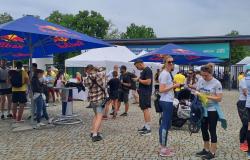“Our briefcase will help children preserve memories of the first days, months or years of life,” says founder Martina W. Opava of the La Vida Loca Endowment Fund. 64 maternity hospitals out of a total of 89 have already participated in his Life in a Suitcase project, which started in 2015. But it faced a difficult test. “It was my personal thank you for my husband’s recovery from cancer,” explains the founder.
You had a desire to help. Where did your steps lead?
“To the newborns. I was already attracted to that when I became a mother in 2011. That was the first time I heard about a delayed child at the hospital in Vinohrady. I searched for what it was all about, and Míša Chmelařová, the station nurse of the neonatal ward at the time, introduced me to the harsh reality. Four years later, we met again and figured out how to start the Life in a Suitcase project.”
What are the reasons that 500 mothers a year do not want their child?
“Most often, addictive substances and socio-economic reasons of the mother, who remains alone during pregnancy, play a role in postponement. Anonymous births are no exception either.”
What is the difference between an anonymous birth and when the mother puts the baby in a baby box?
“In an anonymous birth, the mother gives birth in the maternity hospital under the care of medical professionals. He will sign the application for a so-called secret birth. She can stay in the maternity hospital for several days after giving birth. Nurses in the neonatology department take care of the baby. Her medical records are stored. When the baby is placed in the baby box, the health status of the mother is not known, what was the birth of the child, which complicates the care for both the health workers and the child. In both cases, society should completely avoid judging the mother, because we will never know what fate drove her to this extremely difficult decision.”
Five hundred children a year seems like a big number…
“It’s a huge number. From the European survey, we found out that our project is unique and that they are facing this problem in all European countries. We were surprised by the number of delayed children under one year. Those numbers are half that in other countries.”
But transitional foster care works here…
“I dare say that temporary foster care in the Czech Republic is absolutely exemplary. We are in close contact with the foster parents and their care for the delayed babies is really loving. What unfortunately does not work for us is the care of the biological mother after the child has been put down. I am convinced that if she got the right and timely helping hand, she could get her child back.”
TOas soon as this happens, you come with a briefcase. What is the point?
“The suitcase is already waiting at the maternity hospital, where we will deliver it when the maternity hospital requests it. It must always be a voluntary initiative of health professionals, mostly nurses. The basic equipment includes the first outfit, a toy, a pacifier, a bottle and a special photo album. The medical staff puts photos in it and writes down all the important information. All the tangible memories of the first three years of life are preserved in the case to make it easier for the future surrogate parents to tell. For the child, this narrative is essential for the healthy construction of his identity and the formation of his relationship with himself, with his loved ones and with the world. The briefcase is hugely important for the mental health of delayed children, throughout their lives.”
The suitcase then travels with the baby when it goes to the foster parents…
“And they keep going. For example, foster parents add information about trips, take additional photos and notes. We want to give the child information about how his journey began. That she may have started off out of the ordinary, but she was still full of love. The baby thus receives a love kit from us.”
What were the beginnings of briefcases?
“It was very amateurish. In the beginning, we bought briefcases in a regular stationery shop. At that time, we started giving educational lectures about who are abandoned children, what is transitional foster care, how a child’s identity actually develops, and more. And the children from ZŠ Eden in Prague drew us pictures that were meant to symbolize what they wished for the children who had been put on hold in life. And we made a print out of them.”
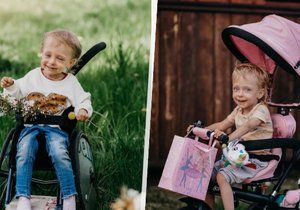
How much does the briefcase cost?
“With all the contents and the book, with delivery to the maternity hospital and with the training of the nurses, it will cost 2,500 CZK.”
How many will you give away?
“About 350. It’s not just about the 64 maternity wards, but also about the temporary foster parents or adoptive parents who call to say they want a case.”
How do you see your project in the future? Need to improve something?
“We would like the memory cases to be an automatic part of every maternity ward, so that every delayed baby gets their memories of early childhood.”
How can you achieve this?
“I personally strive for the project to be enshrined in the Act on the Protection of Children at Risk, so that maternity hospitals “must” prepare them for children. It is written in the constitution that every child has the right to information about his birth. This means that at the age of 18 he can go to the registry office, he can ask what happened to him. In practice, however, they do not know this on any matrices. No one preserves these memories of the abandoned child in the form of photographs, keeping toys, clothes and messages from caregivers.
He will never know what the birth was like, how he behaved in the first days of his life, what significant things happened that day, who fed him for the first time, bathed him, who was the first foster parent, who was the second. For now, the children without a case only have a birth certificate and a discharge report from the maternity ward. We need to change this to promote mental health.”
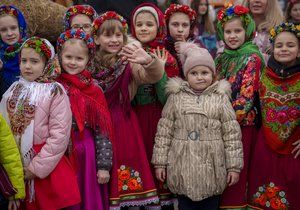
What’s in the briefcase?
People from the foundation fund, together with health workers, fill the suitcases with birth bracelets, photographs, paw prints, the first pacifier, personal messages, a dress or a toy crocheted by the volunteers.
They also have other projects
According to the founder, the implementation of the Life in a Suitcase project has revealed several areas that the Czech state has been neglecting for a long time. If they do not get support, it will have an unfathomable negative impact on the concrete lives of children with an already difficult fate. “For this reason, other support projects were created: Life story – to support disadvantaged children, and DOBROŠKOLA – with an educational and awareness-raising goal for primary school pupils.” says the founder.
You can help too!
One specially made briefcase will cost 2500 CZK. Health insurance companies do not cover it, and in order for the foundation fund to help, it needs about three million crowns a year. You can help too. For example, a financial contribution or a purchase in the e-shop (you can find information at www.zivotvkufriku.cz). Volunteering is also a form of help.
Contact: La Vida Loca
Address: Na Louži 947/1, Prague 10 Vršovice, 101 00.
Phone: +420 732 938 222
Mail: [email protected]
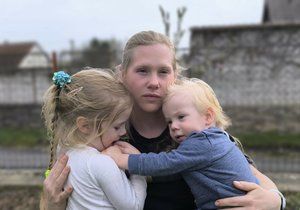
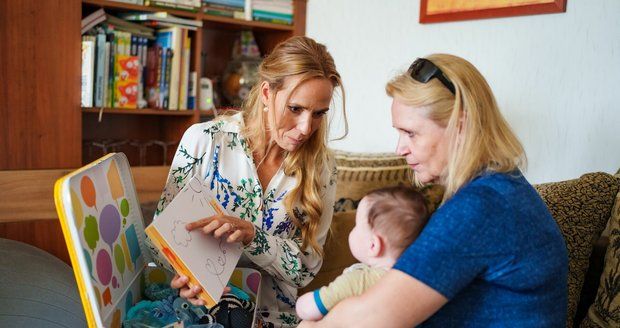
Foster carer Radka Švecová with the baby she is caring for and project founder Martina Wojtylová Opava.
Author: La Vida Loca
Tags: Vida Loca Foundation husbands illness led Martina children
-






